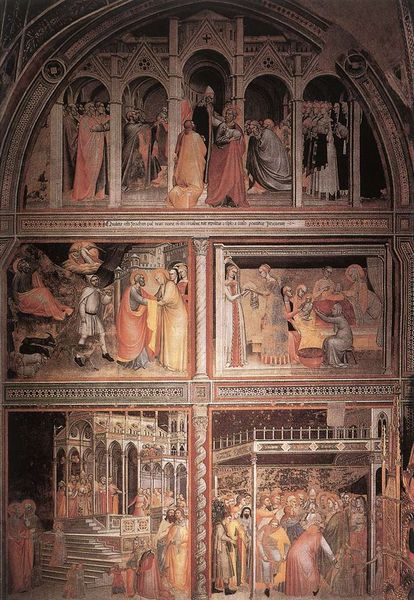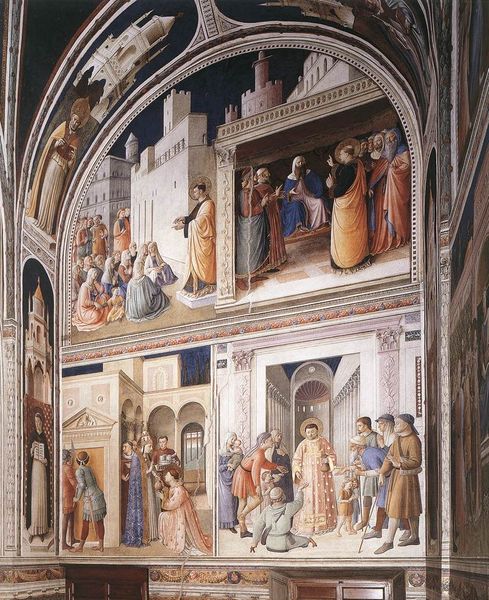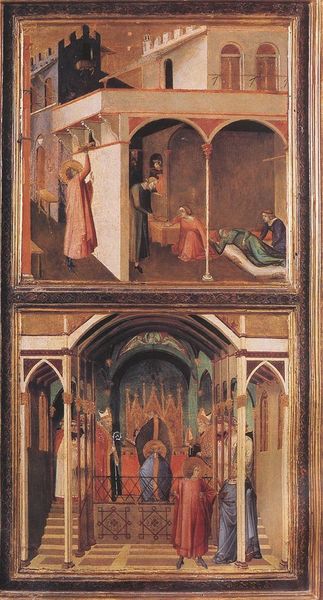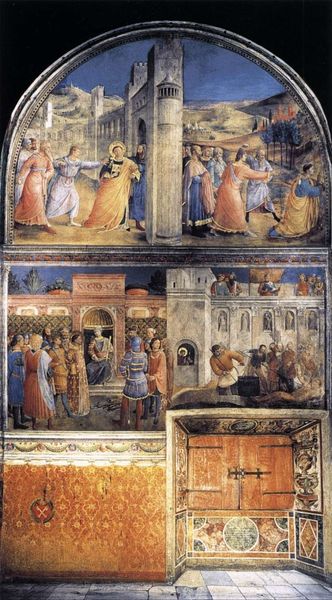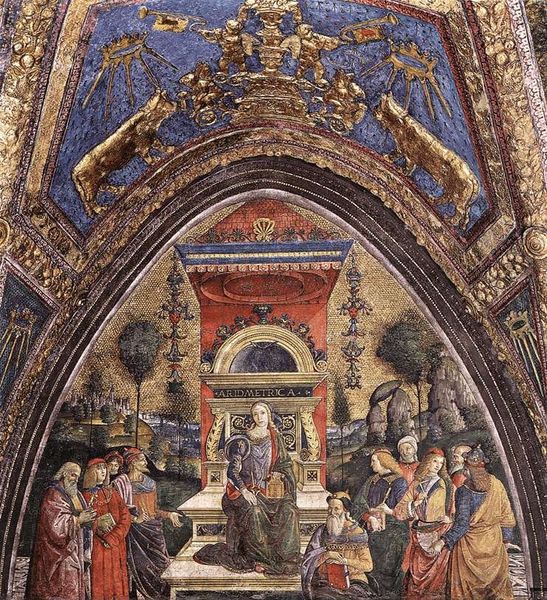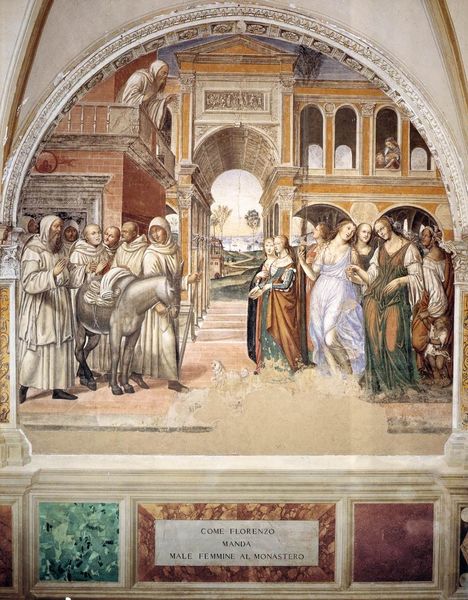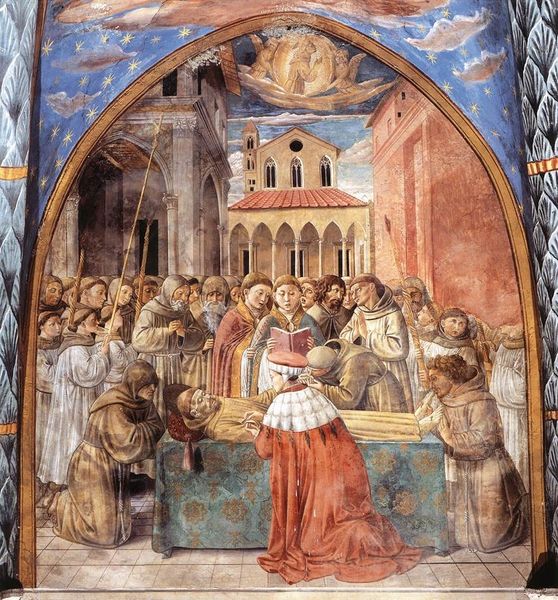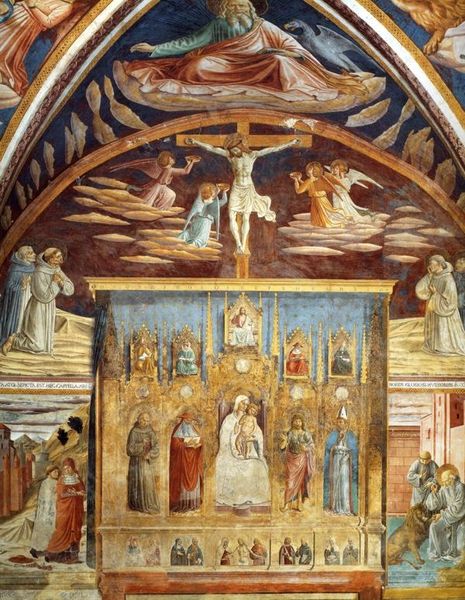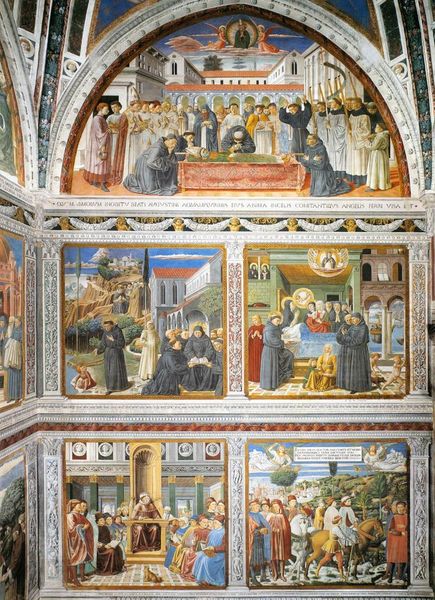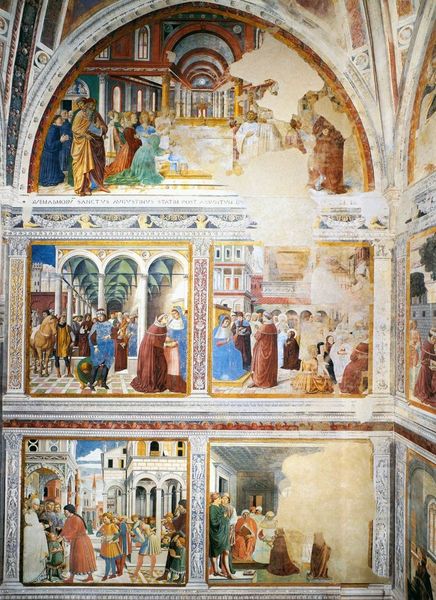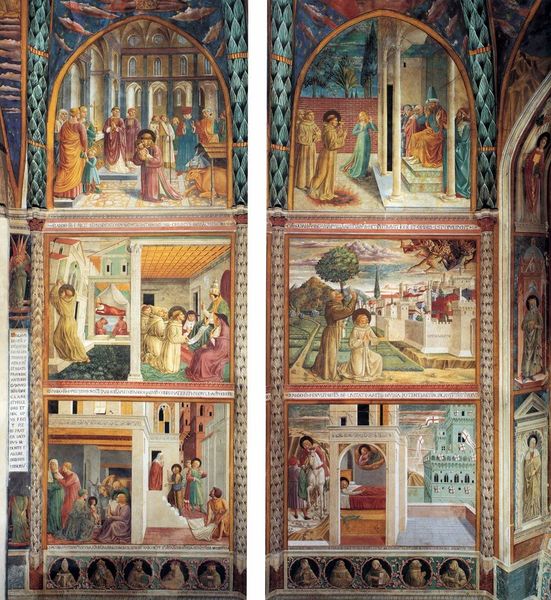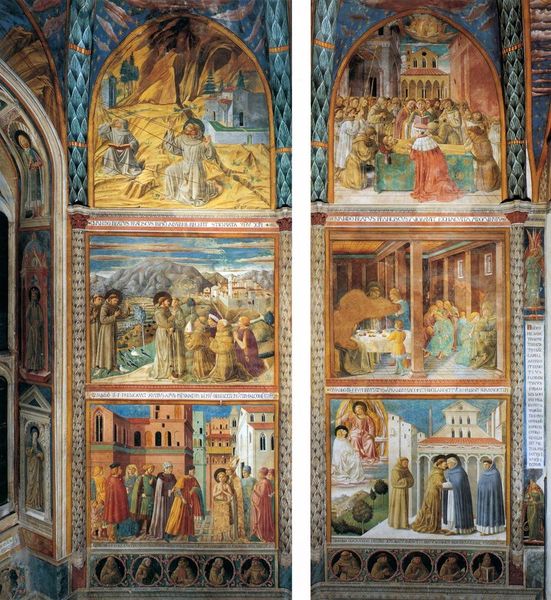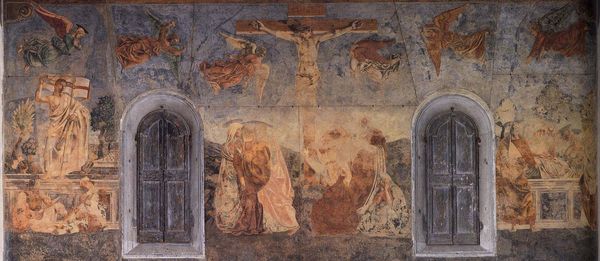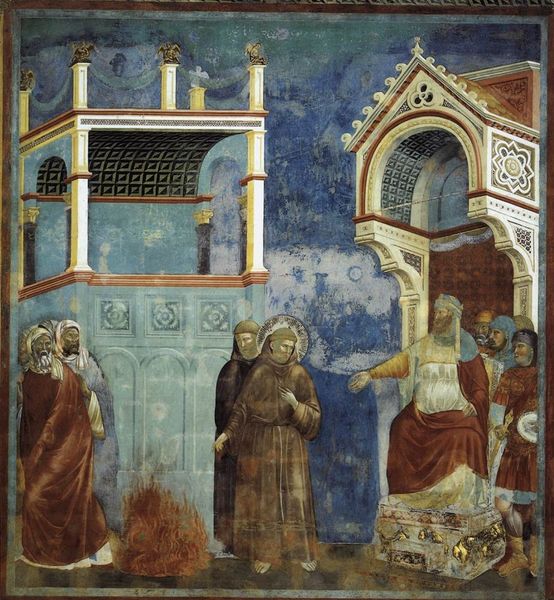
painting, fresco
#
medieval
#
narrative-art
#
painting
#
fresco
#
history-painting
#
italian-renaissance
Copyright: Public domain
Giovanni da Milano created "Scenes from the Life of Magdalene" using fresco, a technique involving pigment on fresh lime plaster. The composition strikes you with its architectural compartmentalization. Each scene, framed distinctly, presents a structured narrative, reminiscent of illuminated manuscripts but on a grand scale. Notice the interplay of color; the muted, earthy tones contrast with deliberate highlights of red and gold, directing your gaze to key figures and moments within each scene. The balanced composition, achieved through symmetrical arrangements and spatial organization, draws us into a semiotic reading of the artwork. The compartmentalization and spatial arrangement encourage us to read the narratives linearly, like text on a page. This structured approach is not merely decorative, but conceptually reinforces the period's understanding of divine order and the role of narrative in conveying religious truth. The very medium of fresco, with its demand for precision and permanence, mirrors the Church's desire for doctrinal stability. The balanced composition of Scenes from the Life of Magdalene, is not only pleasing to the eye, but also serves as a conduit for understanding the religious and cultural values embedded within its structure.
Comments
No comments
Be the first to comment and join the conversation on the ultimate creative platform.
